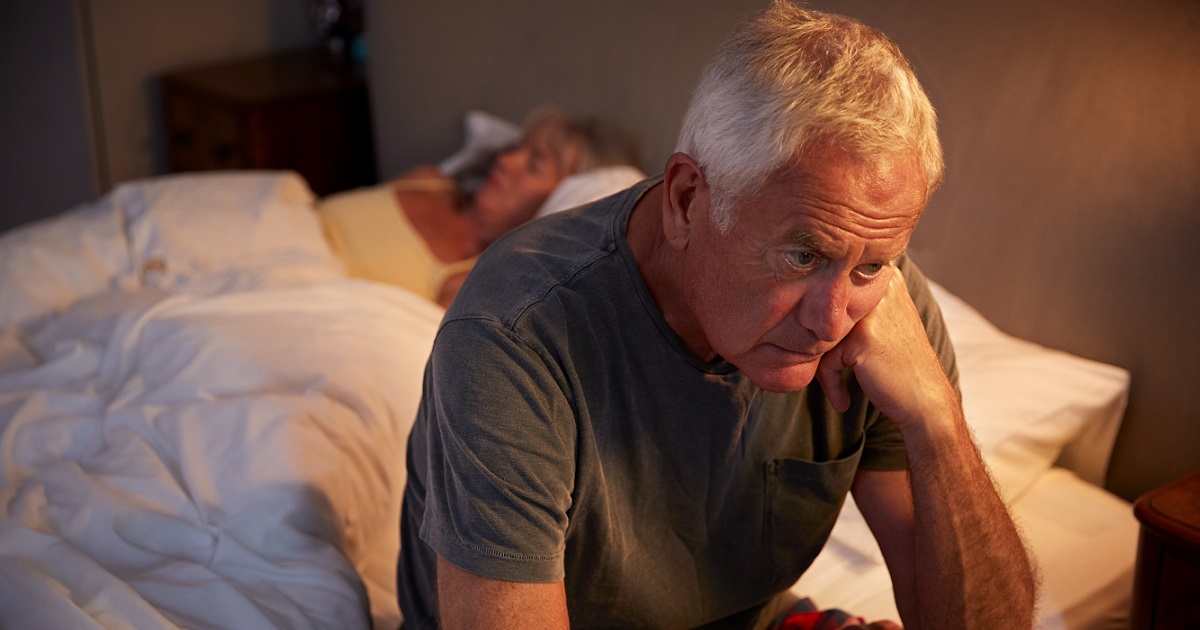The Woolcock Institute of Medical Research

Learning about sleep to sleep better
Many people who sleep badly, have learned to do so. And just as you can learn to sleep badly, you can relearn sleeping well. It’s a lesson Associate Professor Delwyn Bartlett has been teaching people for more than 30 years.
Associate Professor Bartlett is a sleep psychologist who has helped thousands of people get a better night’s sleep. Learning to sleep better, like anything, takes time, practice and perseverance, she says, but part of the problem is that many people buy into common myths around sleep – that we should be spending most of the night in deep sleep; that waking during the night is abnormal and that dream sleep is deep sleep.
“Understanding normal sleep and how your sleep changes across the night and throughout our lives, reduces the pressure of inaccurate sleep expectations,” she says.
It’s not normal to sleep deeply throughout the night. The body and brain take what they need first, so most of our deep sleep – generally only about 20% of our sleep time – occurs in the first third of the night. Around half of our sleep time is spent in relatively light sleep which allows for body re-positioning and awareness changes in our environment. When you consider that early man had to deal with potential predators and other dangers, that was probably a good thing.
Waking during the night is normal and it tends to become more frequent as we get older. Most people wake up 2-3 times a night increasing to 5-9 times per night with age. We don’t usually remember these wake times but, again, they are necessary so we can change our body position and check our environment.
When it comes to dreams, they are anything but the most restful part of the night. Dream sleep is similar to an awake state – the brain is active but the body is atonic (semi-paralysed) so we do not get up and act out our dreams.
SLEEP AND AGEING
As we age, everything about our bodies changes – especially our sight, hearing – and so does our sleep. We wake more often, very light sleep increases dramatically, there is more rapid cycling between sleep states and deep sleep is reduced. These changes in sleep are a normal part of the ageing process.
Want to stay up to date with our research on sleep conditions?
Sign up to our monthly newsletter
Associate Professor Bartlett’s advice: “It is so important to be active mentally and physically with increasing age. When older adults keep their fitness up, the prevalence of insomnia is the same as the general population. Exploring diet and exercise regimen and making relevant changes is another component of healthy sleep.”
SLEEP TIPS
That can be said of sleep at any time of life. There are simple things we can all do to improve our sleep. These include:
- Waking at the same time each day, as much as possible – this sets a sleep/wake pattern for the brain and is more important than a regular bedtime.
- Exercising outside in the morning light – this is a great way to suppress your sleep hormone melatonin and to help you feel more alert.
- Reducing night-time exposure to bright light and electronic devices – which suppress melatonin when you want it.
- Creating space and “slow down time” downtime – deal with the “to do” list, then put it in the background, let go of concerns, worries and plans which will only keep you awake.
- Getting out of bed if sleep doesn’t come – get up, have a gentle stretch, breathe.
“You could sit on the edge of the bed in the dark and put the effort into staying awake. Sounds weird but it works,” says Associate Professor Bartlett. “Trying too hard to sleep often sends a message to your brain there is danger. This strategy does the opposite. Try it, see what happens. You may need to try it a few times and you may need to repeat it.”
There are a range of relaxation strategies you can use to improve your sleep. Be open to trying new things. No one strategy will work for everyone or every time.
Remember, practise, practise and perseverance are required to get your sleep back into a much better pattern.
This article also appeared in the Medical Forum
For more information and sleep tips, download our resources:
FIND OUT MORE
- Read about our Insomnia Clinic
- To find out about our services, go to www.woolcock.org.au/clinic.










